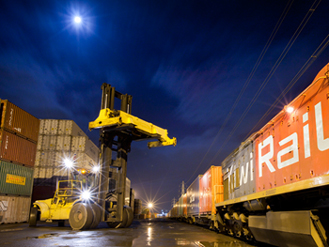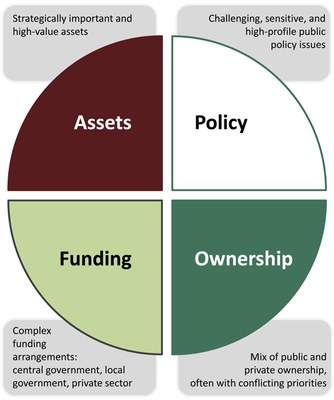Have you got it all boxed off?
Are you sitting comfortably? Settling in to watch the match on your new TV? Maybe you have a beer (or two) to hand, don’t forget the chippies. But do you ever stop to wonder how all this stuff got here?
 For a deeper appreciation of this most ordinary of scenes, I recommend you read The Box by Mark Levinson. The book entertains with a riveting tale of how the shipping container – described as having all the romance of a tin can – completely changed the global economy and how we live.
For a deeper appreciation of this most ordinary of scenes, I recommend you read The Box by Mark Levinson. The book entertains with a riveting tale of how the shipping container – described as having all the romance of a tin can – completely changed the global economy and how we live.
Liverpool and New York, centres of maritime trade for centuries, saw their prosperity swept away when they were unable or unwilling to adapt. Others, such as Seattle, moved into the global premier league of ports. Ports were created where previously there were none, such as Felixstowe in the United Kingdom.
The movement of goods and people is the glue that holds the modern world together, so we ignore it at our peril. New Zealand’s transport sector is large and complex. It employs more than 80,000 people and accounts for more than 5% of our GDP.
The transport sector is essential to supporting economic activity and connecting society. It affects all New Zealanders every day. Strong links between road, rail, maritime, and aviation industries are vital to get people to and fro and move freight around the country and off-shore.
A brief look at the Office’s involvement shows that we audit seven central government transport entities, 78 local authorities, and a number of ports and airports. We also audit other entities that play important enabling roles in the transport sector.
Transport knows no boundaries, it’s cross-cutting. As you can see from the simple diagram below, it has multiple issues. We recognised this complexity by adhering to the management axiom that structure follows strategy, and formed a group to focus on the transport sector.
The group’s objective is to join up our work to make best use of what we know about transport. This helps to make sure that we focus on the right matters, at the right time, and using people with the right skills. It provides significant opportunities for internal knowledge-sharing approaches and capability building.
Our group’s members come from all parts of the Office – performance audit, parliamentary, local government, research and development, accounting policy, communications, financial audit, and assurance.
The group has published its first transport sector report, which sets out the audit results of transport-related entities and local authorities. There’s a list of all the Office’s transport-related reports on the Office’s website.
We continue to brief the relevant select committees, when appropriate, and send representatives to relevant sector events, for example, the NZ Infrastructure Summit earlier in 2014. The group has also prepared a transport sector scan to help shape our five-year work programme.
Our "business as usual" work includes completing the annual audits of transport-focused entities in the public sector, remaining aware of transport issues and risks, and looking at how we can reduce, manage, or otherwise address these through our work.
Some of the topics that are on our radar include:
- transport network resilience;
- the Christchurch rebuild and Auckland transport projects;
- infrastructure maintenance, upgrades, and asset management; and
- the potential of emerging technologies.
Do you think we have the right things in the list? Are there any transport topics that you think we should add?
Note: This was the last post that Tom Haslam wrote for us, before he returned to the United Kingdom. We will miss his blogging ability, and we wish him well.

